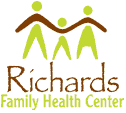Breast Cancer
Even though breast-sparing treatment of cancer has proven to be as effective in prolonging life in Stage l & Stage II breast cancer as mastectomy, mastectomy continues to be the treatment of choice. It is not clear whether women are making informed decisions, or whether doctors are still misrepresenting mastectomy as a "sure thing."
We all know that early detection is a woman's best tool against breast cancer, and the health-care industry promotes regular mammography as a technology that saves women's lives. Yet recent findings challenge this axiom:
1. Several years ago the recommendation that all women between the ages of 35 & 40 get a baseline mammography was quietly dropped by all major health organizations, including the National Cancer Institute and the American Cancer Society. Yet no one let the public know. You see, the same healthy breast at age 35 looks entirely different on a mammogram at age 50.
2. Clinical tests failed to detect any life-prolonging benefit to mammogram screening for women in their 40s.
3. There is evidence that mammograms in younger women can cause more harm than good. A younger woman has a greater chance of having a mammogram-discovered non-invasive breast lesion (that would never progress to cancer) treated with mastectomy. Screening is more likely to detect these less aggressive breast abnormalities, like microscopic lesions, which would never have progressed to cancer in 50% of the cases. Furtherrnore, malignant tumors are more difficult to detect in young women because of their dense breast tissue and because cancer in this age group tends to be more aggressive. The bottom line: mammograms in young women lead to an increased rate of unnecessary breast biopsies and mastectomies.
4. No one reviews the radiologist's interpretation of the mammogram. Why is this significant? A recent Yale study showed wide variation in opinions when 10 seasoned radiologists reviewed an identical set of high quality mammograms of 150 women.
5. Radiation dosage from mammograms (and x-rays, in general) has been drastically reduced over the last decade, and the public has been misled to believe that repeated mammograms are safe. A 60-year study in Sweden challenges this view. The study showed that women exposed to mammography radiation in their 40s had a statistically significant increase in the incidence of breast cancer.
6. More about the "1 in 8 will get breast cancer" statistic. Although 1 in 8 women in the United States will develop breast cancer in her lifetime, the risk increases markedly with advancing age. More than 75% of breast cancer occurs in women older than 50.
7. Women over 65 have the highest risk of developing cancer and the LEAST awareness. Young women, not at high risk of developing the disease, have the HIGHEST perception that they are at risk.
8. Misleading mammogram ads are likely to continue because this country has far too many screering facilities. In 1990, 10,000 machines were counted in the U.S., whereas only 5,132 are needed if all women followed the current recommended guidelines. This can lead to untruthful advertising and, since the equipment is very costly, an economic interest in blocking any other technology, even when it is safer.
None of this speaks well for mammography. And, there is a far safer tool available - it is thermography. [see Thermography article below] You may never have heard of it. That is because adoption of thermography as the screening technology of choice for breast cancer was blocked politically by the American College of Medical Radiologists. Thermography is safe and non-invasive. Your tissues are subjected to no radiation. A picture is taken which shows "hot spots" in the breast, measuring the increased metabolic activity that cancer and pre-cancerous tissue produces. However, by law, thermography cannot be used to diagnose breast cancer. Therefore, it is not recognized by third- party insurers. If you want to avail yourself of a safe and effective pre-screening procedure, one which will indicate if you need a mammogram, we can provide a thermography screening at out offices
Does this apply to you? If so, see our information on Consultations.
[TOP]
© 2011 Richards Family Health Center. This site or any part may not be reproduced without the written consent of Richards Family Health Center. N Rowan Richards, DC, DABCI, FIACA at 242 South Glendora CA 91741. 626 963 1678. email:richardsfhc@richardsfamilyhealth.com. This site is Not intended to dispense health advice or serve as a substitute for actual patient contact with a qualified healthcare provider. Our sole purpose is one of education. It is our expectation that our site can educate our visitors about the efficacy of some healthcare treatments that exist as an alternative to conventional medical wisdom.
PRIVACY POLICY: Richards Family Health Center takes your privacy very seriously. Be assured that we do not sell or rent your contact information to anyone.


